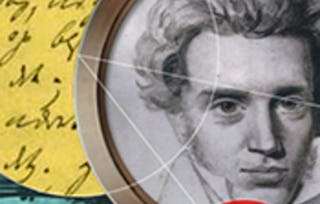This course examines how the idea of "the modern" develops at the end of the 18th century in European philosophy and literature, and how being modern (or progressive, or hip) became one of the crucial criteria for understanding and evaluating cultural change. Are we still in modernity, or have we moved beyond the modern to the postmodern?

The Modern and the Postmodern (Part 1)

The Modern and the Postmodern (Part 1)

Instructor: Michael S. Roth
145,851 already enrolled
Included with
1,044 reviews
Skills you'll gain
Details to know

Add to your LinkedIn profile
See how employees at top companies are mastering in-demand skills

There are 8 modules in this course
“The Modern and the Postmodern Part I” covers the first half of a full semester course on European history, literature and philosophy. We begin with Immanuel Kant and Jean Jacques Rousseau and conclude with Friedrich Nietzsche and Charles Baudelaire and a very quick look at painting at the time they wrote. Although in the final week themes of postmodernism begin to emerge, a discussion of how modernism becomes postmodernism is at the heart of Part II of this course.
What's included
2 readings
Why is philosophy relevant to modernity? Through reading Jean-Jacques Rousseau and Immanuel Kant, we examine philosophy as a reflection on modernity and progress.
What's included
2 videos1 reading
Using Rousseau’s Discourse on the Origins of Inequality, we study how the pursuit of knowledge is related to the politics of inequality.
What's included
4 videos1 reading
Karl Marx is our focus here as we move from a consideration of ideas to a confrontation with alienation, class struggle and revolution.
What's included
5 videos1 reading1 peer review
We read Flaubert’s Madame Bovary as a reflection on convention, stupidity and art in the wake of the failures of mid-19th century revolution.
What's included
4 videos1 reading1 peer review
We situate Charles Darwin’s great achievement in the context of the English Enlightenment traditions and reimaging the world without a goal for change.
What's included
4 videos1 reading
Through an examination of Charles Baudelaire and Friedrich Nietzsche, we focus on an aesthetic embrace of intensity instead of search for the “really real.”
What's included
6 videos1 reading1 peer review
A Quick Survey of how advanced painting moved toward a consideration of the surface of the canvas and away from a quest for the most realistic representation of the world.
What's included
2 videos
Instructor

Offered by
Explore more from Philosophy
 Status: Preview
Status: PreviewWesleyan University
 Status: Preview
Status: PreviewUniversity of Virginia
 Status: Preview
Status: PreviewUniversity of Virginia
 Status: Preview
Status: PreviewUniversity of Copenhagen
Why people choose Coursera for their career

Felipe M.

Jennifer J.

Larry W.

Chaitanya A.
Learner reviews
- 5 stars
84.21%
- 4 stars
12.24%
- 3 stars
1.91%
- 2 stars
0.57%
- 1 star
1.05%
Showing 3 of 1044
Reviewed on Dec 28, 2020
Excellent course. The lectures were engaging and very informative and broad with the inclusion of a variety of thinkers. I also appreciated learning about the paintings of the post-modern period.
Reviewed on Jan 30, 2018
Best course and professor I have taken at Coursera, since Demystifying Mindfulness (which is #1).Really liked Prof Roth, and appreciate his continued emails after the course via Mentor connections.
Reviewed on Mar 19, 2018
Very interesting subject matter, and the course was well organized and accessible. Would recommend taking the course to those interested in late Western philosophy.

Open new doors with Coursera Plus
Unlimited access to 10,000+ world-class courses, hands-on projects, and job-ready certificate programs - all included in your subscription
Advance your career with an online degree
Earn a degree from world-class universities - 100% online
Join over 3,400 global companies that choose Coursera for Business
Upskill your employees to excel in the digital economy
Frequently asked questions
To access the course materials, assignments and to earn a Certificate, you will need to purchase the Certificate experience when you enroll in a course. You can try a Free Trial instead, or apply for Financial Aid. The course may offer 'Full Course, No Certificate' instead. This option lets you see all course materials, submit required assessments, and get a final grade. This also means that you will not be able to purchase a Certificate experience.
When you purchase a Certificate you get access to all course materials, including graded assignments. Upon completing the course, your electronic Certificate will be added to your Accomplishments page - from there, you can print your Certificate or add it to your LinkedIn profile.
Yes. In select learning programs, you can apply for financial aid or a scholarship if you can’t afford the enrollment fee. If fin aid or scholarship is available for your learning program selection, you’ll find a link to apply on the description page.
More questions
Financial aid available,
¹ Some assignments in this course are AI-graded. For these assignments, your data will be used in accordance with Coursera's Privacy Notice.

